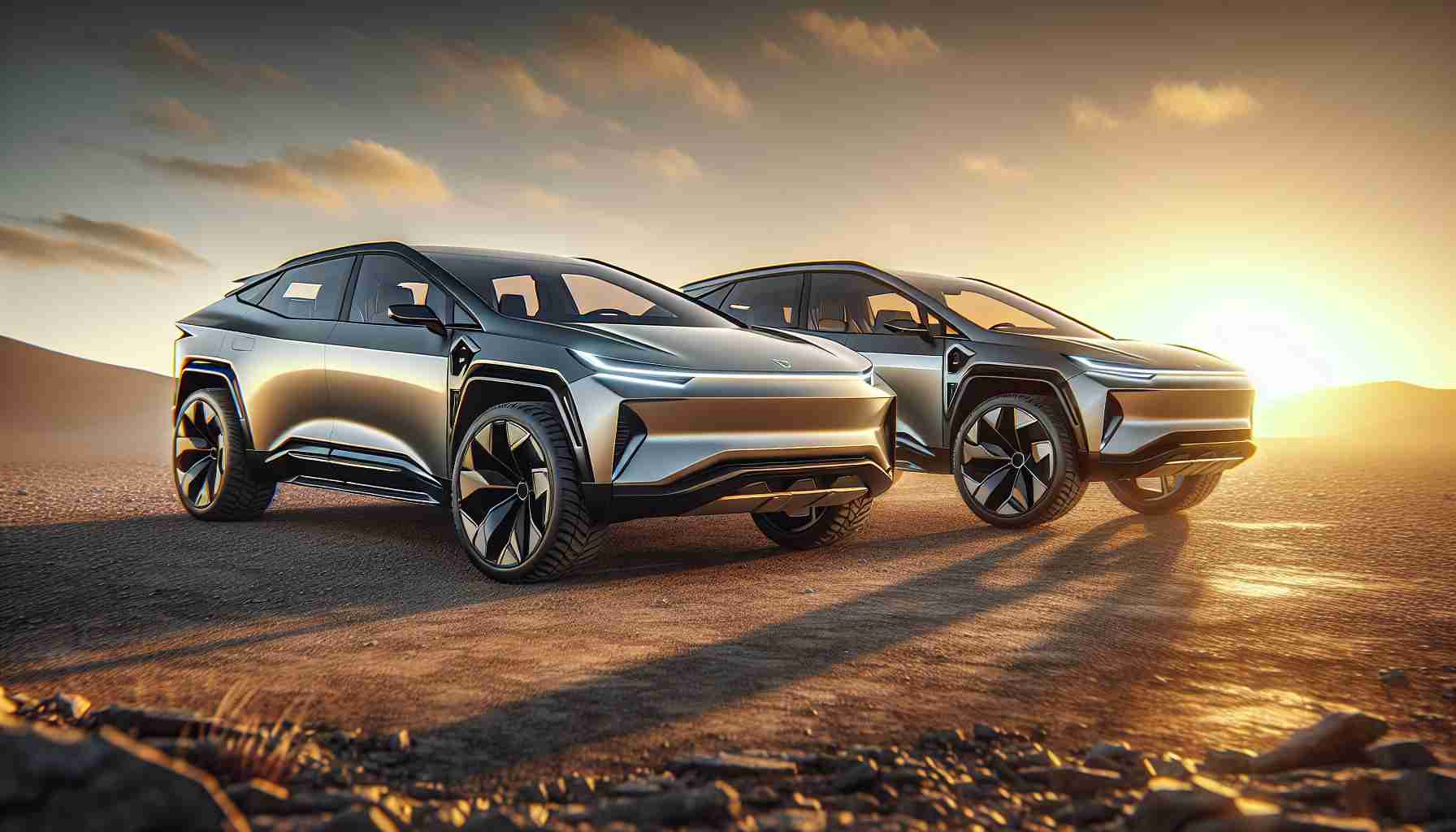Hyundai and Kia are gearing up for an exciting transformation in the electric vehicle market by 2025. With the introduction of new models like the spacious IONIQ 9 and the compact Kia EV5 and EV3, both brands are poised to capture significant consumer interest.
Hyundai’s global vehicle sales saw a slight dip of 1% last year, totaling over 7.23 million units. The decline primarily stemmed from decreased demand in South Korea, even though sales in the U.S. and Europe provided some balance. For 2025, Hyundai aims to boost sales to 7.39 million vehicles, fueled by the arrival of its innovative electric SUVs.
The highly anticipated IONIQ 9 is set to debut in early 2025, featuring a robust 110.3 kWh battery that offers a remarkable driving range of up to 335 miles. Its generous dimensions allow for a luxurious interior that comfortably accommodates seven passengers. This model will be produced at Hyundai’s new plant in Georgia, further enhancing local manufacturing.
Meanwhile, Kia is expanding its electric lineup with the EV5, already gaining traction in China and set to sell globally in 2025. With competitive pricing and sharp sales figures in Korea, the EV3 is already making waves in the market.
As both brands push forward, they are excited about their future in the electric vehicle sector, anticipating a successful year ahead. Will their new electric models drive more consumers to their showrooms? Only time will tell!
Beyond the EV Horizon: Shaping Society and the Environment
The shift towards electric vehicles (EVs) from manufacturers like Hyundai and Kia not only signifies a pivotal moment for these companies but also represents a broader transformation within society and the global economy. As consumer awareness of climate change grows, the demand for sustainable transportation solutions is at an all-time high. Automakers are not merely responding to this demand; they are actively reshaping consumer culture, emphasizing eco-friendly technologies and practices.
Economic implications are profound as the automotive industry realigns toward electric mobility. The transition has the potential to create hundreds of thousands of jobs in manufacturing, infrastructure development, and maintenance of advanced battery systems. With investments in local plants, such as Hyundai’s new facility in Georgia, communities can expect an influx of highly skilled jobs, stimulating local economies while reducing dependence on fossil fuels.
Looking at future trends, the Environmental Protection Agency projects a continued rise in EV adoption, predicting that by 2030, as much as 20% of new car sales in the U.S. could be electric. This surge will be accompanied by significant advancements in battery technology, potentially reducing costs and environmental impact. Long-term, this shift might decrease overall greenhouse gas emissions, significantly influencing climate change mitigation efforts globally.
As consumers continue to embrace electric alternatives, the ripple effects will dominate conversations surrounding sustainability, urban planning, and energy policies for decades to come. Hyundai and Kia’s evolution in the automotive landscape highlights not just a shift in product offerings but a broader commitment to a sustainable future.
Hyundai and Kia: Revolutionizing the Electric Vehicle Landscape by 2025
Overview of Upcoming Electric Models
Hyundai and Kia are on the brink of a significant shift in the electric vehicle (EV) market, slated for 2025. With the launch of promising new models such as the spacious IONIQ 9 and the compact Kia EV5 and EV3, both brands are positioned to capture a greater share of consumer interest in the EV sector. These new offerings are not only set to enhance their electric portfolios but also align with the growing demand for sustainable transportation options.
Key Features of Hyundai IONIQ 9
The highly anticipated IONIQ 9 is set to debut in early 2025 and is designed with advanced technology and consumer comfort in mind. Key specifications include:
– Battery and Range: Equipped with a robust 110.3 kWh battery, the IONIQ 9 boasts an impressive driving range of up to 335 miles on a single charge.
– Interior Space: This model features a spacious interior that can comfortably seat seven passengers, making it an excellent option for families and group travelers.
– Manufacturing: Production will take place at Hyundai’s new plant in Georgia, which highlights the brand’s commitment to local manufacturing and economic support.
Kia’s Strategic EV Expansion
Kia is also enhancing its electric vehicle lineup, particularly with the introduction of the EV5, which has already gained significant traction in Asian markets. The EV3 aims to replicate this success globally when it launches in 2025. Key details include:
– Market Introduction: The EV5 is currently making waves in China, showcasing Kia’s strategic move to penetrate one of the largest automotive markets in the world.
– Pricing Strategy: Kia is expected to adopt competitive pricing for the EV5 and EV3, which could further boost their appeal among cost-conscious consumers.
Analysis of Sales Trends and Projections
Despite a slight decline in global vehicle sales of 1% last year, totaling over 7.23 million units, both Hyundai and Kia are optimistic about turning this trend around. In particular, Hyundai is setting ambitious targets for 2025, aiming to increase sales to 7.39 million vehicles. This goal is backed by the introduction of their innovative electric SUVs.
Pros and Cons of the New Electric Models
# Pros:
– Sustainability: Both models contribute to sustainable driving options, supporting the shift towards greener technologies.
– Innovative Features: Enhanced technology and spacious designs cater to a broad consumer base, including families.
– Increased Range: Long driving ranges diminish range anxiety and improve practicality for daily use.
# Cons:
– Market Competition: The growing EV market means heightened competition from established brands and new entrants.
– Consumer Adoption: Successful sales will depend on consumer acceptance and the transition from traditional vehicles to electric.
Future Predictions and Market Insights
Experts predict that Hyundai and Kia’s focus on electric mobility could substantially influence the automotive landscape by 2025. As both manufacturers continue to innovate and expand their electric offerings, they may redefine customer expectations in the EV market. Additionally, sustained efforts in local manufacturing and favorable pricing strategies may enhance their competitiveness amid rising consumer demand for electric vehicles.
Conclusion
Hyundai and Kia appear well-equipped to navigate the future of the automotive industry as they shift toward a more electrified lineup. With standout models like the IONIQ 9, EV5, and EV3 on the horizon, they are set to capture significant consumer interest and potentially reshape driving habits worldwide. The excitement surrounding their upcoming launches indicates a promising year ahead in the electric vehicle market.
For more insights into the evolving landscape of electric vehicles, visit Hyundai and Kia.






